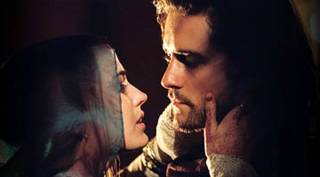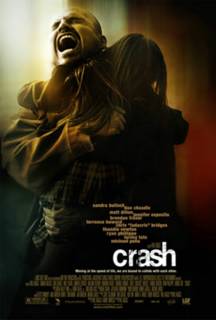
A non-believer thrust into defending the holiest city of all, Balian of Ibelin finds himself in the throes of an un-holy war between the crusading Christians and the equally fanatical Muslims. He is able to hold his ground. He saved hundreds of lives. He saved the city of Jerusalem from ruin. And ultimately he delivered himself from the soils of desperation and destruction to the zenith of glory.
Ridley Scott, hailed as the master of modern epic, successfully gives us again another breathtaking and gloriously decorated production. Kingdom of Heaven is the fictionalized story of the great knight Balian, whose valiant legacy is forever immortalized in history books as the leader who surrendered the holy city of Jerusalem into the hands of Muslim warrior Saladin.
Orlando Bloom headlines this terrific movie and he effectively essays the role in a quiet but compelling performance. From the moment we see him engulfed in grief over his wife's death to his slow realization of the responsibilities pushed onto him after his father dies we find a fusion of emotions from an actor whose performances of late has been rather spotty. Here the actor wields a sword, he makes illicit love to the queen and he battles a battalion of armies, and yet we can still sense a certain amount of vulnerability - one that can be gleaned from the way the film is carefully structured.
The writers have fashioned the film to reveal the story of a tortured soul whose passion for life has ebbed and to be able to redeem himself he must die and be born again to deliver the people of Jerusalem from the threats of destruction and death.
It is not almost noticeable, but it seems to me that Scott has drawn some parallels between the story of Jesus Christ and the story of Balian. Or do I just love the movie so much, I am not sure.
Bloom is ably supported by a stellar cast of actors. Among them Eva Green who last wowed us with her wild portrayal in "The Dreamers". Here she shines as the betrothed princess Sibylla who falls for Balian. Jeremy Irons also appears as Tiberias, the king's loyal advisor, and he is as good as ever even in a minor role. Liam Neeson and Brendan Gleeson also appear.
In Kingdom of Heaven, Scott gives us a truly epic film, devoid of inconsequential nonsense that befell the similar productions of Troy and Alexander. Indeed the film is about the war waged by the Muslims and Christians during the infantile days of religious awakening but the viewer is presented with the cases for both sides: for truly men may have different choices of religion but in the end we are still speaking of only one God. It's a triumph!






